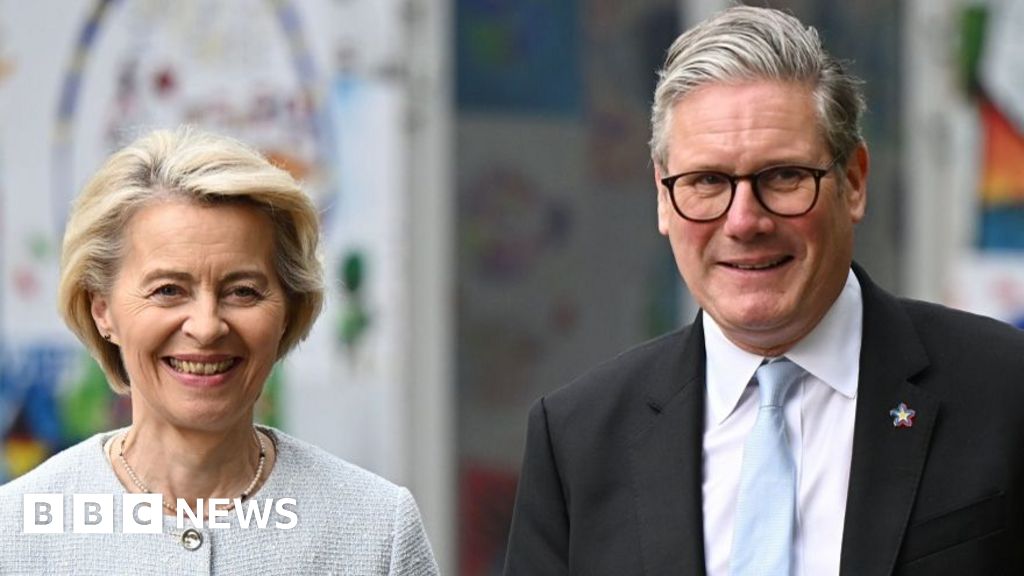Negotiations for a deal between the UK and EU are still ongoing hours before the prime minister hosts a UK-EU summit on Monday.Sir Keir Starmer will m
Negotiations for a deal between the UK and EU are still ongoing hours before the prime minister hosts a UK-EU summit on Monday.
Sir Keir Starmer will meet European Commission President Ursula von der Leyen for the second time in four days as he aims to strike a deal with the EU on a range of issues.
This could include a youth mobility scheme, allowing UK passport holders to use EU airport e-gates, and announcements on trade, security, and fishing rights.
Conservative leader Kemi Badenoch and Reform UK leader Nigel Farage have already described the deal as a “surrender” despite the contents not being known.
As the talks continue into the night, the BBC understands, there is no deadline for when they will conclude.
Negotiations for the UK are being led by the minister for UK-EU relations, Nick Thomas-Symonds, who told the BBC’s Sunday with Laura Kuenssberg that he was driven by “ruthless pragmatism” and was focused on jobs, lower household bills, and stronger borders.
But he declined to give specific details of any deal, saying: “Nothing is agreed until everything is agreed.”
Announcements around trade and security have been expected to include British access to a 150 billion euro (£125 billion) EU defence fund, which could be a boost for UK defence companies.
Fishing could also be part of a deal, with a post-Brexit deal on fishing rights set to expire at the end of June 2026.
The Conservatives have warned that the government must “make it clear that giving up any rights to UK waters and natural resources would represent a betrayal to British fishermen”.
Reports have circulated that a youth mobility scheme with the EU could be set up – something that Sir Keir told the Times on Saturday would be a “reciprocal” arrangement in which young people would be able to move abroad for up to two years.
No specific details about the ages of those who could be eligible and whether there would be a cap on numbers were given, and it has received mixed responses from opposition parties.
Badenoch described the possible scheme as “free movement through the back door” while Reform’s deputy leader Richard Tice said earlier this week that such a scheme would be “the thin end” of EU free movement.
The Liberal Democrats have backed the idea of a “capped mobility scheme”, although the party’s Europe spokesperson James MacCleary has accused the government of “dragging their heels when it comes to properly negotiating on the issue”.
Reports have also suggested there could be agreements on British travellers using EU e-gates at European airports and cutting red tape on food exports and imports.
Thomas-Symonds said he was “pushing for people to be able to go through” European airports “far more quickly” and that he was confident about a deal on food.
He added: “We know we’ve had lorries waiting for 16 hours, fresh food in the back not able to be exported because frankly it’s just going off, red tape, all the certifications that are required, we absolutely want to reduce that.”
Conservative MP Alex Burghart told the BBC on Sunday he was concerned the government was signing up to EU standards and becoming “a rule taker – one of the things we specifically left behind when we left the EU”.
www.bbc.com
